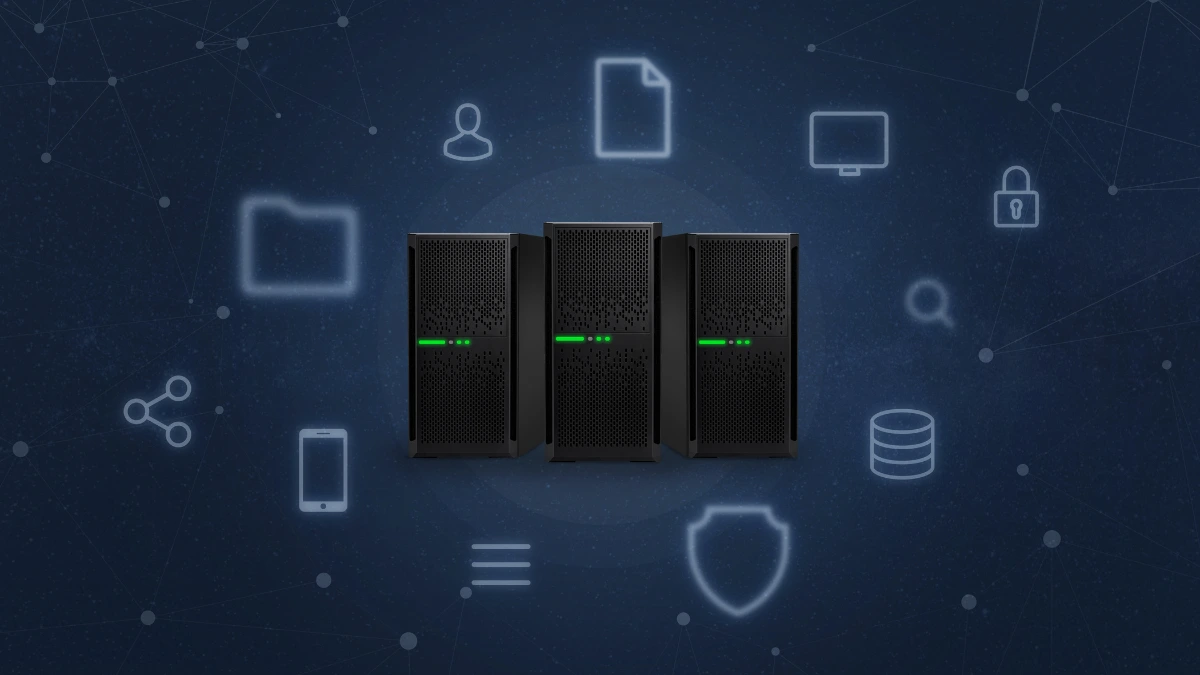The presence of a server provides a digital service center to other computer devices connected through a network. One type of server according to their function is the web server, which offers several key functions and advantages.
The functions of a web server include storing and delivering content to provide database access. Moreover, the advantages include increased website access speed, flexible scalability, to secure data.
This article will give you information on web servers, including definitions, functions, and the advantages they have.
What is a Web Server?

A web server is a type of device that functions to store and serve web content to clients through a browser. User requests will be sent by the server through a predetermined communication protocol. Using a web server will help affect the performance of your website.
The Functions
The web server has several functions, from storing and delivering content to providing database access. Here are some of its functions:
- Storing and delivering content: Stores various files that make up a website, such as HTML files, CSS, JavaScript, images, and others.
- Handles HTTP/HTTPS requests: Processes requests from browsers using the HTTP/HTTPS protocol.
- Provides database access: Provides dynamic content or to store data required by the web application.
The Advantages

The web server has several advantages, from increased website access speed, flexible scalability, to secure data. Here are some of its main advantages in detail:
1. Increase website access speed
One of the advantages of a web server is the increase in website access speed. With a good configuration and an efficient caching system, it can increase the loading speed of web pages. This not only improves user experience but also affects SEO rankings.
2. Efficient traffic management
One of the other advantages of this server is good traffic management. The server can allocate optimal resources with the right configuration so that even in a surge of visitors, the website will remain stable.
3. Flexible scalability

Flexible scalability is another advantage of web servers. To accommodate the growth of web traffic, the server can be easily scaled up to ensure the website remains responsive when accessed.
4. Supports a wide variety of programming languages
In using this server, you don’t need to worry about programming language constraints. Various programming languages such as PHP, Python, Ruby, and Node.js can well support this server.
5. Secure data
Using a web server will certainly increase the security of your data. This server is equipped with various security features such as SSL/TLS, firewall, and Distributed Denial of Services (DDoS) protection that help protect against cyber threats.
Those are the definitions, functions, and advantages of a web server that you need to know. Another thing to note is that server on the market must pass the certification test from the Directorate General of Digital Infrastructure (DJID).
Server regulation is based on the Ministerial Decree (KEPMEN) No. 60 Tahun 2022, which requires all radio frequency-based devices to meet specific technical standards before being sold in the country.
With a DJID certification, users can feel calm about using a server device whose quality and security are guaranteed. For manufacturers or importers of server devices, obtaining certification from DJID is a mandatory step before the device can be officially marketed in Indonesia.
To simplify the certification process, Type Approval Services for ICT Products are available to assist with this process as a reliable solution. [UN].

